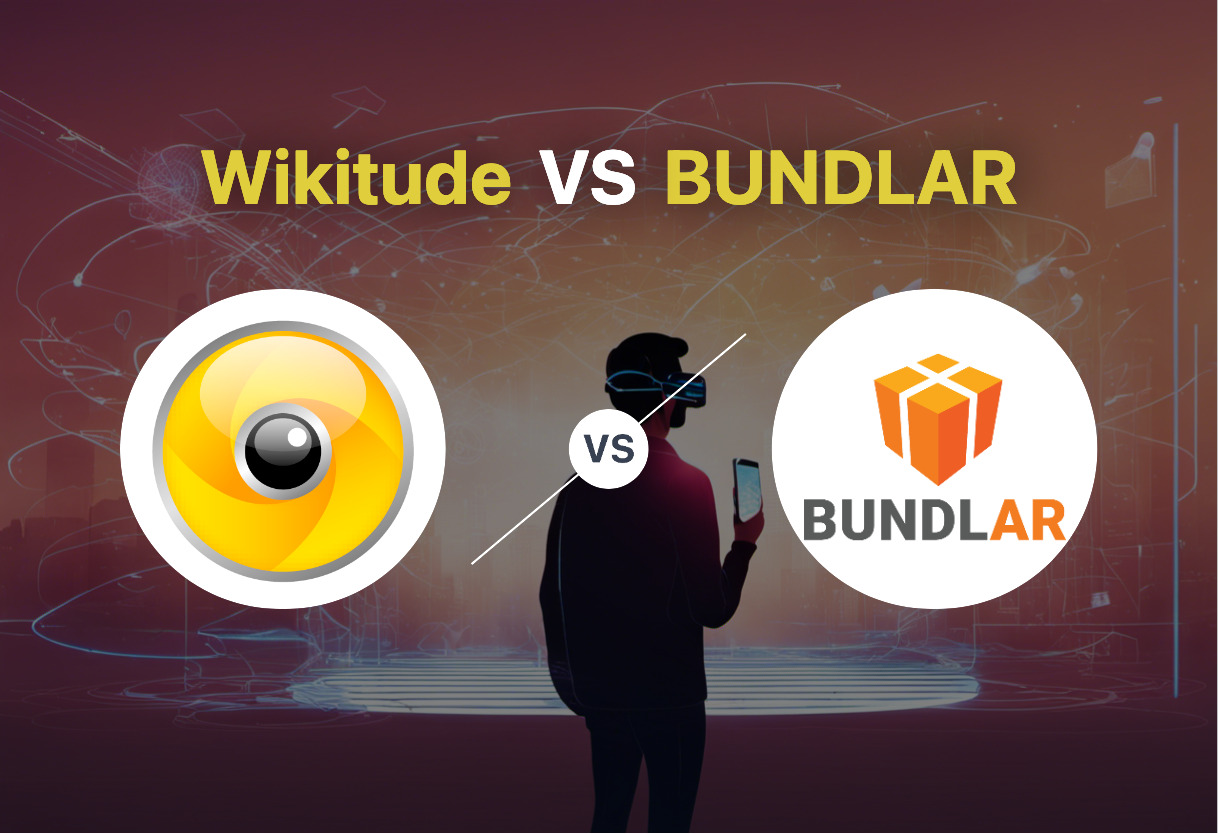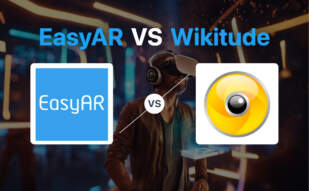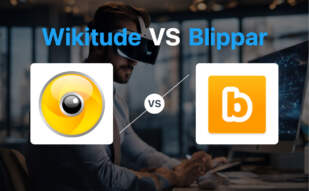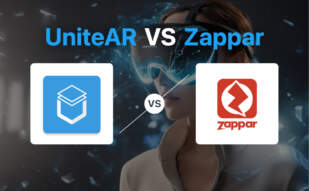For advanced AR solutions on multiple platforms, Wikitude with its high-end SDK dominates. However, if simplicity beats complexity for your AR needs, BUNDLAR’s user-friendly, no-code platform presents a robust alternative. Certain advanced AR needs may push you towards Wikitude, while quick iteration and simplicity will find a friend in BUNDLAR.

Key Differences Between Wikitude and BUNDLAR
- Coding: BUNDLAR is a no-code solution, while Wikitude leverages advanced SDK for feature-rich AR experiences.
- Platforms: Wikitude is compatible with Android, iOS, and Windows OS and smart eyewear devices, BUNDLAR primarily focusses on mobile (iOS).
- Editing & designing: BUNDLAR’s CMS features a drag-and-drop interface while Wikitude relies on SDK enhancements.
- Integration: Wikitude supports several external native AR frameworks, BUNDLAR offers third-party software integration like Microsoft Office 365, Salesforce, Zendesk.
| Comparison | Wikitude | BUNDLAR |
|---|---|---|
| Initial Launch | 2008 | Unspecified |
| Core Technology | SDK for AR Development | No-code AR Platform |
| Acquisition | Acquired by Qualcomm in 2021 | Independent |
| Compatibility | Android, iOS, Windows OS | iOS 12.0 or later |
| Primary Use Cases | Image Recognition & Tracking, 3D model rendering, Video Overlay | Operations, Logistics, Support, Installation, Maintenance, Onboarding, Safety, Sales |
| Recognition | Top 5 AR Apps, Best Developer Tool at AWE 2017 | Positive user review across industries |
| Advanced Features | SLAM, Multiple Object Tracking, Cylinder Tracking | Cloud bundling for stable experiences |
| Integration | Supports ARKit, ARCore directly without integration | Integration with Microsoft Office 365, Salesforce, Zendesk |
What Is Wikitude and Who’s It For?
Wikitude is a trailblazing AR platform based in Salzburg, Austria, providing SDKs for AR development since launching in 2008. Its primary offerings focus on image recognition & tracking, 3D model rendering, video overlay, location-based AR and SLAM. Acquired by Qualcomm in 2021, it is compatible with Android, iOS, and Windows OS, and optimized for smart eyewear devices. Targeted users include AR enthusiasts, app developers, especially Unity experts, and agencies specialized in AR.

Pros of Wikitude
- Functional for both standalone and external native AR frameworks like ARKit and ARCore
- Provides highly advanced AR features like multiple object tracking and image recognition & tracking
- Optimized for smart eyewear devices
Cons of Wikitude
- Accuracy of location-based AR dependent on GPS, compass and motion sensor
- If using the Expert Edition, an advanced understanding of Unity is required
- Needs user’s position for location-based AR which can limit use-cases
What Is BUNDLAR and Who’s It For?
BUNDLAR is an innovative augmented reality platform offering a no-code solution to create, publish, and measure AR experiences. It’s well-suited to a variety of applications including operations, logistics, onboarding, sales enablement and more. The target audience is broad, from professional individuals, enterprise sectors to federal entities. It is an ideal solution for anyone with a computer and internet connection, seeking to create AR experiences without writing code.

Pros of BUNDLAR
- No-code, drag-and-drop interface for AR creation
- Supports integration with third-party softwares like Microsoft Office 365 and Salesforce
- Granular measurement of ROI via analytics dashboard
Cons of BUNDLAR
- Requires iOS 12.0 or later for compatibility
- Dependent on BUNDLAR app for user access
- Collection and linking of personal data for its privacy practices
Which AR Powerhouse Should You Opt For? Wikitude or BUNDLAR?
In the thrilling duel of AR technologies, it’s the Austrian spark, Wikitude, up against the no-code solution powerhouse, BUNDLAR. Let’s carve out which AR whale sails best for different audience segments.
The Tech-savvy Developers
Wikitude wins hands down for the tech-obsessed developers. Its consistent innovation, like the SDK 9.0 Expert Edition, demonstrates an obvious tilt towards advanced AR features. Moreover, it’s approved by a fleet of over twenty AR-specializing agencies and provides seamless compatibility with ARKit, ARCore.

The Non-Coders and Visual Creators
If you’d rather control your AR escapades with a swift drag and drop, BUNDLAR is your game. Its stupendous no-code, drag-and-drop interface allows even the non-technicals to climb upon the AR creation bandwagon.

The AR Market Scholars
For those on the prowl for AR market recognition and acceptance, the choice is clear. Wikitude, with its numerous accolades like the ‘2017 Best Developer Tool’ at Augmented World Expo, and named in the Top 5 AR Apps, leaves no room for doubt.

The Integration Pursuers
If integration with third-party software like Microsoft Office 365, Salesforce, Zendesk is on your priority list, BUNDLAR stands as an unmatched victor. Plus, it offers platform tiers that align best with customer fit.

For wannabe AR wizards seeking advanced features and market recognition, Wikitude shines. Yet, for those drawn to no-code solutions with multi-software integration, BUNDLAR rules the roost.
Tiffany Brise
Content writer @ Aircada, patiently awaiting a consumer AR headset that doesn’t suck.





